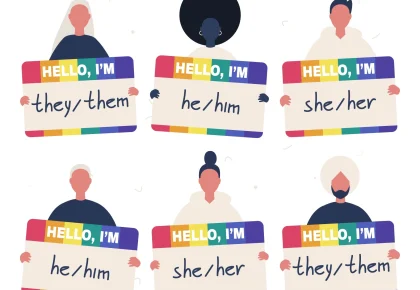Bostock Anniversary: EEOC Issues Guidance on Protections for LGBTQ+ Individuals in the Workforce
On June 15, 2020, the United States Supreme Court ruled that discrimination on the basis of sexual orientation (and gender identity) is discrimination “on the basis of sex,” and is prohibited by Title VII of the Civil Rights Act of 1964. Over one year later, the agency charged with enforcing issues of discrimination in the workplace, the United States Equal Employment Opportunity Commission “EEOC”) issued guidance to employers intended to clarify just what the new protections mean for employers.
The EEOC guidance breaks down the most frequently asked questions about the Bostock decision and how it applies (and in some cases does not apply) to employers. We suggest you review the guidance in its entirety, but key questions addressed by the document (along with general answers) include the following:
- What happened in the Bostock case?
The Bostock decision affirmatively made it illegal for an employer to discriminate against an employee on the basis of their sexual orientation or gender identity. The court reached its decision by holding that Title VII of the Civil Rights Act of 1964’s prohibition against sex discrimination applies to discrimination “on the basis of sex” and that sexual orientation and/or gender identity cannot be separated from the idea of sex. Therefore, the Court found that sexual orientation and gender identity discrimination and/or harassment are illegal forms of discrimination under Title VII.
- Does Title VII protect all workers?
Title VII protects employees working for employers with 15 or more employees.
- Does Title VII apply to all employers?
Title VII applies to all private and public sector employers with 15 or more employees.
- Does Title VII protect employees who work in places where state or local law does not prohibit discrimination on the basis of sexual orientation or gender identity?
Yes.
- What type of discriminatory employment actions does Title VII prohibit?
Among other things, under Title VII employers cannot discriminate against individuals based on sexual orientation or gender identity with respect to:
- hiring
- firing, furloughs, or reductions in force
- promotions
- demotions
- discipline
- training
- work assignments
- pay, overtime, or other compensation
- fringe benefits
- other terms, conditions, and privileges of employment.
- Are non-LGBTQ+ employees also protected against discrimination on the basis of sexual orientation and gender identity status?
Yes.
- Could an employer’s discriminatory action be justified on the basis of customer or client preferences?
As a general rule, no.
- Is an employer allowed to discriminate against an employee because the employer believes the employee acts or appears in ways that do not conform to stereotypes about the way men or women are expected to behave?
No.
- May a covered employer require a transgender employee to dress in accordance with the employee’s sex assigned at birth?
No.
- Does an employer have the right to have separate sex-segregated bathrooms at the workplace?
Yes, all individuals have the right to use the restroom that is consistent with their gender identity.
- Could the use of pronouns that are inconsistent with an individual’s gender identity be considered harassment?
Yes.
The guidance also points employees in the right direction to file a charge of discrimination under Title VII. It reminds them that it is illegal to retaliate against an employee for making a complaint or assisting in an investigation.
Syntrio highly recommends that all employers review the EEOC’s guidance with their entire workforce and revisit policy and training programs to ensure they are consistent with changes to the law that have occurred over the past twelve months. Syntrio welcomes your questions and would be happy to assist with the implementation of a training program and/or policy revision. Syntrio works with employers and organizations of all sizes and looks forward to discussing these emerging issues with you or your representatives soon.




